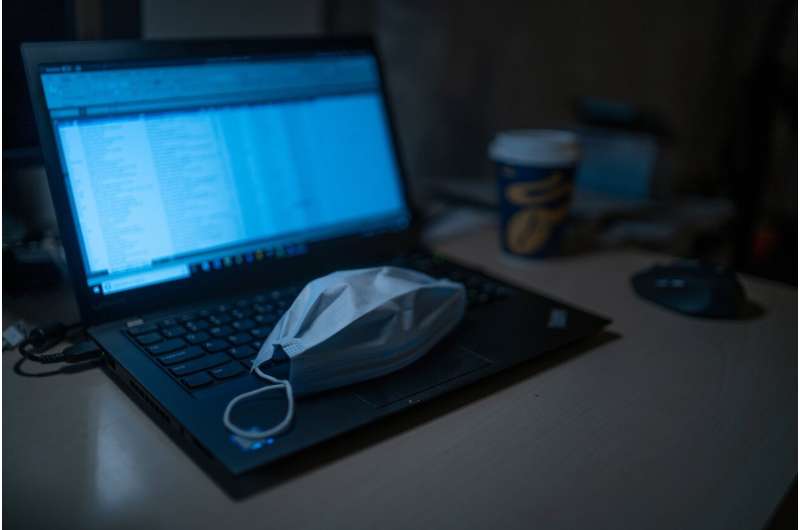Credit: Unsplash/CC0 Public Domain
Even a relatively short hospital stay for COVID-19 can result in long-term health and financial impacts for patients, according to early results from a study funded by the National Heart, Lung, and Blood Institute (NHLBI), part of the National Institutes of Health.
The ongoing study, conducted by the NHLBI Prevention and Early Treatment of Acute Lung Injury (PETAL) Network, has enrolled over 1,300 patients at 44 major medical centers. The early analysis includes 253 patients who were hospitalized during the fall of 2020 through early 2021, during the pandemic's so called third wave.
Preliminary analysis finds that close to 85% of people hospitalized for COVID said that they were not back to their pre-COVID lives one month later. And these problems don't appear to be a consequence of age or previous health status—the people surveyed were an average age of 60 years old and in relatively good health before their bouts with COVID-19.
"These people have substantially worse problems after hospitalization than clinicians would have expected," said one of the study's co-lead authors Theodore "Jack" Iwashyna of the Department of Internal Medicine.
Most had a new or worse cardiopulmonary symptom, a finding in line with other studies of so-called long COVID. However, the study reveals other significant factors that may be driving people's inability to make a full recovery.
Almost half of the patients surveyed reported a new disability that prevented them from doing activities of daily living one month later.
"This isn't patients saying, 'I can't run quite as far as I used to'. This is them saying 'I can't walk, I can't cook, I can't shower'. The effects are devastating," said co-lead author C. Terri Hough, M.D., Professor of Medicine and Chief, Division of Pulmonary and Critical Care Medicine Oregon Health & Science University. Hough adds, "Unfortunately, we saw this even among patients with quite short hospital stays."
The average patient included in the study was only hospitalized for five days, and half for less than that. While longer hospitalizations were associated with even more disability and symptoms, problems were present even among those with only short stays, even among the young.
On top of the physical impacts of a hospital stay, the financial fallout was widespread. Twenty-three percent of patients said they had used up their savings, 20% had to either change their job or became unemployed, and close to 40% required a loved one to miss work to provide care.
So far, the study hints at one major risk factor: a lack of follow-up healthcare services. Seventy-seven percent of patients reporting a disability had not received skilled home care following their hospitalization, even when other hospital services were back up and running. "Somewhere the ball is being dropped. One month later, these patients need services and are not getting them," said Iwashyna.
The study is working to identify other ways to improve recovery.
"As we continue, we're excited that this study will link the biology of initial hospitalizations for COVID-19 to long-term patient-centered outcomes, and thereby help us find treatments to decrease the burden of recovery from COVID-19," said Hough. "There are few other national studies that have both details about the hospital stay and are continuing to ask for patient perspectives like we are."
"While much attention has focused on deaths from COVID, these findings highlight the long-term consequences in survivors of COVID-19 and shed light on the public health crisis resulting from the disability and economic loss among COVID survivors," said James P. Kiley, Ph.D., director of NHLBI's Division of Lung Diseases.
Results were published in the Journal of Hospital Medicine.
More information: Iwashyna, T. et al "Continuing Cardiopulmonary Symptoms, Disability, and Financial Toxicity One Month After Hospitalization for 3rd Wave COVID-19: Early Results from a U.S. Nationwide Cohort," Journal of Hospital Medicine. DOI: 10.12788/jhm.3660
Journal information: Journal of Hospital Medicine
Provided by University of Michigan






















